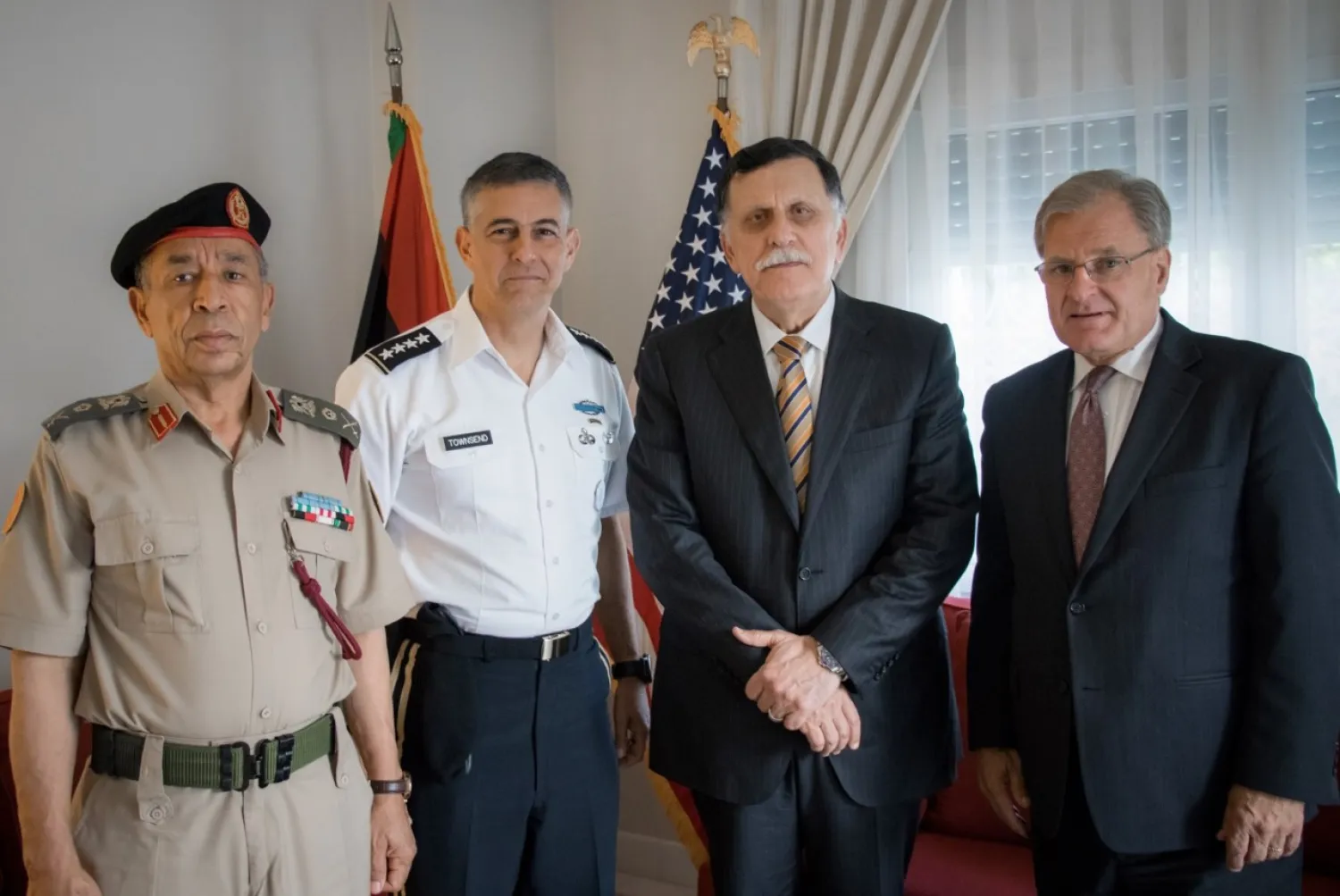The Libyan National Army (LNA), led by Field Marshal Khalifa Haftar, accused Turkey of targeting civilians in Asbiah in support of forces loyal to Fayez al-Sarraj’s Government of National Accord (GNA).
Media center of the National Army's “Dignity Operations” room said that Turkish drones, brought by the Sarraj government, bombed Asbiah, 120 km southwest of Tripoli, killing four.
It warned that criminals will be punished.
Sarraj met with the new US Ambassador to Libya, Richard Norland, and the new commander of US Africa Command (AFRICOM), Gen. Stephen Townsend, in Tunis on Monday.
The meeting focused on the security environment in Libya, the importance of addressing the existing violent extremist threat, and the need to resolve the current conflict through political negotiation.
Sarraj reiterated that his forces are determined to defend the capital. He also praised the cooperation with the US in various areas, namely the war on terrorism.
Norland asserted there is no military solution to the Libyan crisis, adding that the US seeks to end the military operations, and find diplomatic solutions to achieve stability and prosperity in Libya to build a democratic civil state.
AFRICOM issued a statement following the meeting, saying Townsend traveled to Tunis for meetings focused on US-Tunisian bilateral security and on US security interests in neighboring Libya.
“We emphasized to Prime Minister Sarraj the importance of supporting a diplomatic solution to put an end to the current conflict,” said Townsend.
In addition, the UN Secretary General’s Special Representative (SGSR), Ghassan Salame, and his Deputy for Political Affairs Stephanie Williams met with the AFRICOM Commander and the US Ambassador in Tunis.
The UN Mission in Libya (UNSMIL) said in a statement that Salame briefed the officials on the ongoing dynamics and prospects for a resumption of the political process. They all agreed that a political settlement is the only way forward to prevent Libya’s insecurity to prevail.
Meanwhile, Foreign Minister of the Interim Libyan government Abdul Hadi al-Hweij said the national army was engaged in a decisive and impartial battle to eradicate terrorism and its militias.
Hweij said at a symposium organized by the Egyptian Trade Union in Cairo that the national armed forces managed to control 90 percent of the Libyan state's territory.
He indicated that the forces are seven kilometers from Tripoli.
In other news, Italian aid group Mediterranea said one of its ships, Mare Jonio, has rescued about 100 migrants, including eight pregnant women and 22 children and at least 6 others minors.
The NGO tweeted that the rescue happened early on Wednesday after the Mare Jonio spotted a rubber dinghy on its radar.
“It was overcrowded, drifting and with a tubular already deflated. Luckily we arrived in time to rescue them,” said Mediterranea.
It asserted that the migrants were all safe on board, with several cases of hypothermia, with some having clear signs of mistreatment and torture suffered in Libya.









